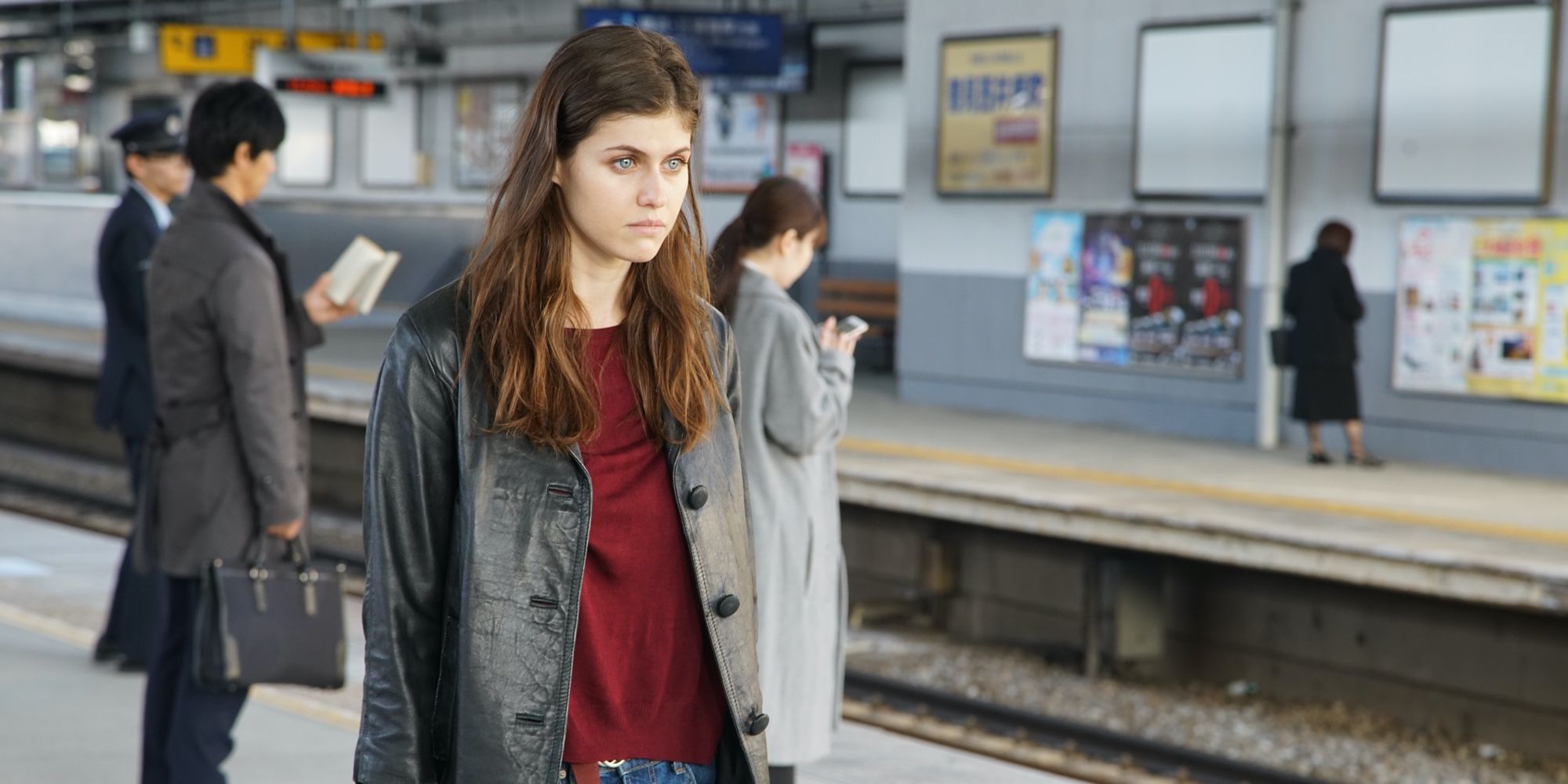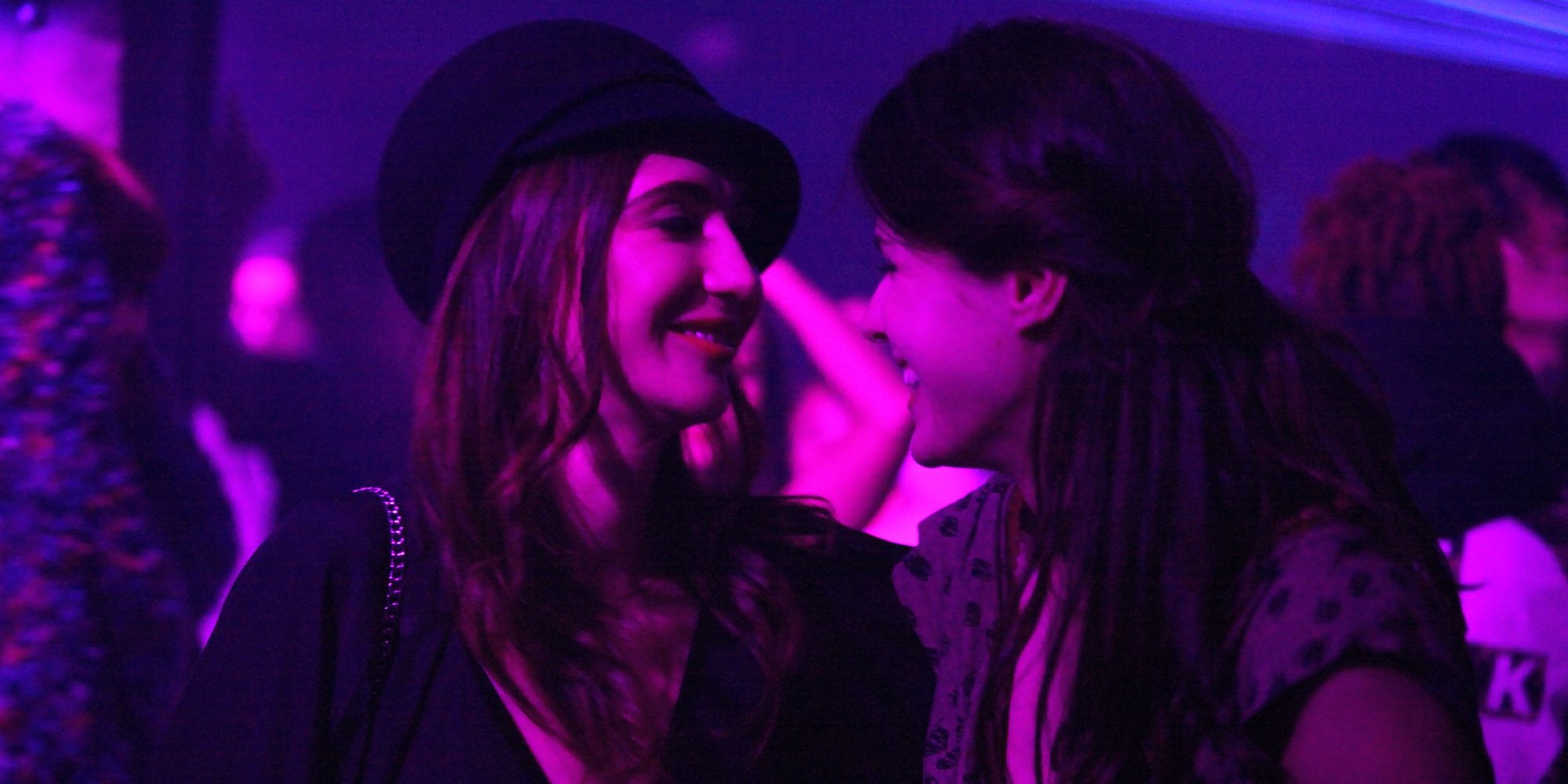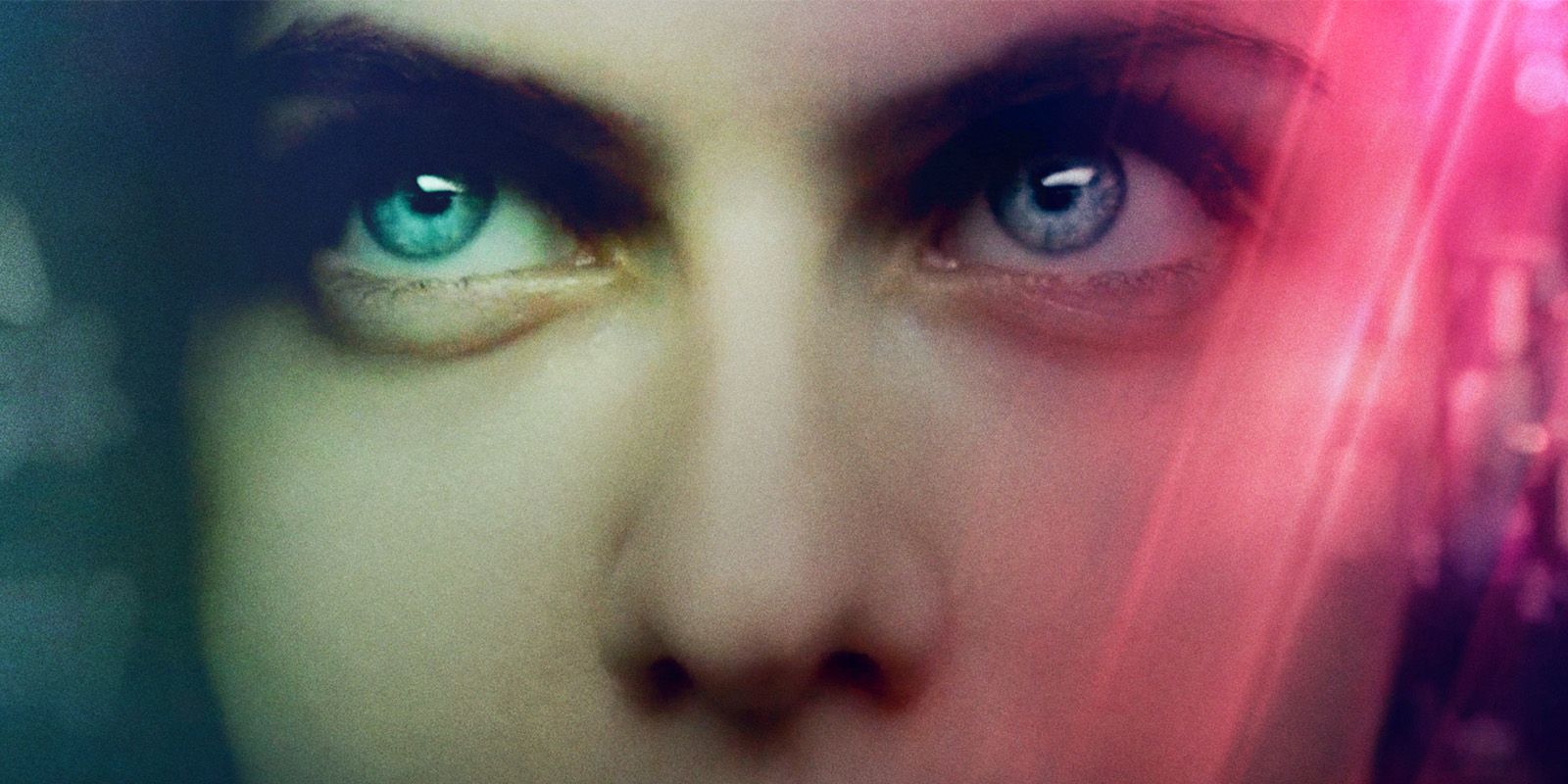Lost Girls & Love Hotels may have premiered this week through Video On Demand, but it began its journey fourteen years ago as the debut novel of author Catherine Hanrahan. Once the book was optioned for film, Hanrahan was given the opportunity to pen the screenplay for one woman’s descent into darkness.
During an in-depth chat with Screen Rant, the author and screenwriter shared some of her inspirations for the story, dove into the themes she likes to write about, and explained why Alexandra Daddario was perfect for the lead role of Margaret.
What was the inspiration behind the novel?
Catherine Hanrahan: I guess a little bit of it comes from me and my experience in Japan, but there's a heavy hand with fiction - let's say that. I started writing the novel when I was in my late 20s, and I was always searching out books and films with antiheroes. Like Trainspotting or Bright Lights, Big City, so I knew that the character was going to be this female antihero. You don't see that very often.
And I think that's kind of the reason the book was polarizing. Some people loved it, and some people hated it. But I think that's okay. I just wanted to make a character study with some humor, just delving into kind of someone's darkest night.
What region inspired some of the storytelling that we see in the film and in the book?
Catherine Hanrahan: I lived in both Tokyo and Kyoto. My first year in Japan, when I was living in Tokyo, I was very depressed and drinking a lot and spending time in these little dingy bars. That was what I sought out; that was what I needed at that time. I guess I wanted to indulge that darkness a bit.
Those places really stuck with me, so I put that and the accompanying feelings into the book. And then in Kyoto, I had a romance that went bad with a Japanese man. So, I took those two things and put them together. The dark night of the soul that I had in Tokyo and the bad romance in Kyoto.
Did you always envision this story cinematically when you were writing the novel?
Catherine Hanrahan: Yeah, I think so. I think I'm a really visual writer. I also had a fiction professor at the University of British Columbia who really hammered at the three act structure, and how it was a really good way to start and to organize a novel. That was really helpful for me in finishing the book, having a structure to start off with. So, when I went to write the script, even though it's a completely different muscle that you use when you're writing a script, I already had three act structure built into the book. Which made it so much easier.
At what point did you start thinking about adapting it and bringing it to the screen?
Catherine Hanrahan: It's been almost 20 years since I started writing it, and then 15 since I got the publishing deal. And I think it was actually optioned before it came out in the bookstores, but that project kind of fell apart. There was a script that had been written at that point, and it was a good script, but it was just not how I imagined the film or the character at all.
It went through different iterations and different producers. Finally, when William Olsson got involved, I was living in Stockholm and he's Swedish. And I thought, "That's the universe telling me." I don't actually believe that the universe tells me things, but I thought that's the universe telling me that I should ask to write the script, because we could meet up for lunch. I just put it out there that I wanted to take a stab at it, and luckily, he was willing to let me.
What were some of the biggest challenges in the adaptation process? What are the benefits and drawbacks of adapting your own story into a screenplay?
Catherine Hanrahan: I think there's a reason why novelists tend not to adapt their own things, because writing a novel is kind of this lonely, solitary, one woman job. When writing a script, you're constantly getting notes, and it's very collaborative. You can't fool yourself into thinking you have the final say, because you never do. So, you really have to not be precious about your own work.
I think when you write a novel, it becomes kind of like your baby. It's like putting your baby up for adoption a little bit. But luckily, I had a team that was really, really great. I'm passionate about my work, but I'm not going to be super precious, and the spirit of collaboration is really essential to filmmaking. You have to buy that 100%.
Obviously, things change when you adapt for the screen. Can you talk to me about any new layers that were added?
Catherine Hanrahan: There was an entirely new character, Liam's girlfriend. Louise was a new character, and I really loved her character. A few of her scenes got cut out of the final version, but I just wanted to introduce a character into the film that was going to be a voice of reason for Margaret.
I think in the book, she doesn't work as a bar hostess. But in the film, we decided to put it in. I worked as a bar hostess for a very short time in Tokyo, and I think I told all the crazy stories to the producers and director. They wanted me to introduce that into the movie, because it was kind of a weird, horrible, fascinating world. So, the hostess club scenes are not in the novel.
Lost Girls & Love Hotels seems to have a lot to say to people that are still traveling and finding themselves. Can you talk to me about some of the themes we find in the story?
Catherine Hanrahan: I think that loneliness and connection is a theme that I'm always exploring, no matter what kind of script I'm writing. Depression and going through the darkness to get to the light, and facing an uncertain future with if not optimism, then resilience. I think everyone's feeling an uncertain future right now with the pandemic.
You've been living with these characters for over 15 years. Can you talk to me about the casting?
Catherine Hanrahan: It was a really involved process, getting to the right actress for Margaret. We finally did with Alexandra Daddario, but I think there were like 200 actresses up for it at one point. So many different types and different approaches to the character.
At the outset, I never would have seen I imagined Alexandra Daddario as Margaret, but after seeing her on screen, I can't imagine anyone else playing her. She just brought this wistfulness and lightness to her that is just so wonderful. I think her performance was incredible. I hope people notice her for that.
What surprised you the most about Alexandra's portrayal of Margaret?
Catherine Hanrahan: I think Alexandra's body language is just amazing in the film. She's an incredibly beautiful woman, but she brought this kind of - the only way I can describe it is "goofiness" - to the character that adds a soft layer to a character that can be very hard. I'm sure people will say the character is unlikable or whatever, but that's just because of who she is. Alex just brought something really ephemeral that wasn't in the script, but she somehow found there. It wasn't written into the action lines, but she somehow found something that I didn't even know was there.
Another person that adds a great sense of mystery is Takehiro Hira. Can you talk to me about what he adds to Kazu?
Catherine Hanrahan: I think Takehiro just has this amazing combination of being an imposing guy, but he's also just so gentle. When he's speaking to Margaret, there's just this softness and this gentleness. I think the way that Kazu was written was as kind of this enigmatic character, but with very little softness. Just danger and raw sexuality, that's how I imagined him. But Takehiro brought this softness, even in the lilt of his voice when he talks to Margaret, that I think is wonderful. He's terrific.
I don't know if you've seen that BBC series that he's in, Giri/Haji , but he's incredible.
What was the collaborative process like with director William Olsson?
Catherine Hanrahan: William is great. He's very open to people's ideas, but he also had his own clear vision when he went in of how he wanted to approach the material. I think there were different ways you could go with all the sexual content, and he could have gone a lot darker, I think. But he chose kind of a romantic view of the relationship between Kazu and Margaret.
He's just a wonderful person, and the kind of person that you trust with your work.
This framing of Japan isn't necessarily the kind we're used to seeing. Can you talk to me about how you frame Japan as its own character, at least the bar scene, in the world of the film?
Catherine Hanrahan: Yeah. I wouldn't say that the film is about Japan or Japanese society at all, but I think Japan was the perfect backdrop, and it was the spark in the gasoline that pushes Margaret into this dark journey that she goes on. I wanted to portray the Japan that I knew, with the short alleyways and neon signs, and almost the roughness of urban Tokyo. Not the kind of cherry blossoms and temples that you're used to seeing.
I wanted a gritty backdrop to Margaret's story that kind of reflects her mood. I think Kenji, the cinematographer, did a phenomenal job. The look of the film is just incredible.
What are you hoping audiences take away from the film when they see it?
Catherine Hanrahan: I hope that people can appreciate a female antihero and see Margaret for who she is. She's flawed, and she's making really bad decisions all the way through the film. But she grabs onto that speck of hope and just takes it with her. And I think that the end of the film is is hopeful. I hope people like Margaret, and I hope they love Alexandra Daddario.
Lost Girls & Love Hotels is now available on digital and on-demand.



